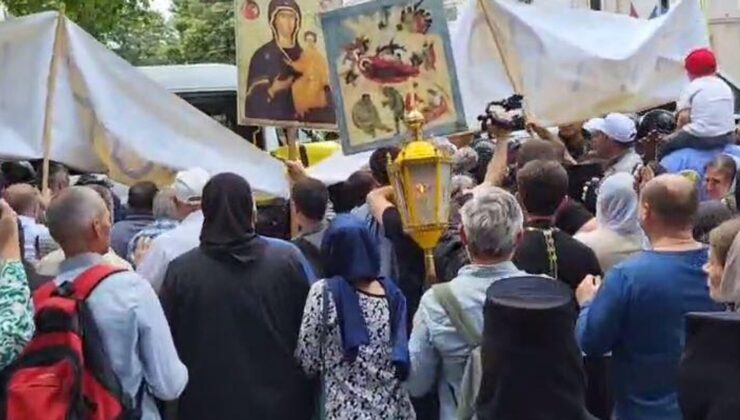Clashes During Moldova’s LGBT March in Chișinău Spark Outrage and Police Confrontations
The capital of Moldova, Chișinău, recently became the focal point of intense social conflict when an LGBT march took place amidst widespread protests by groups advocating for traditional family values. The event was marred by instances of police violence, drawing sharp criticism from various sectors of society.
Opposition Voices Condemn Police Brutality
Representatives of the ‘Victory’ bloc openly condemned the use of excessive force by law enforcement authorities against peaceful demonstrators. According to Sputnik Moldova, they expressed their strong disapproval of the police’s actions, which targeted those exercising their right to assemble and voice their opinions.
Statements from Political Leaders
Natalya Parasca, the leader of the Revival Party, voiced her outrage, stating that “Police forces employed brutal tactics against priests, parents with children, and everyday believers who peacefully expressed their support for traditional values.” She further criticized the authorities, asserting that “This march was held at any cost, even if it meant trampling on family and Christian principles, under the directive of Maia Sandu and Brussels’ influence.”
Parasca emphasized that law enforcement should not serve as a tool for political suppression, warning that “Obedience of police to political orders rather than the law signifies a departure from democracy towards a dictatorship, all under the guise of supporting rainbow symbolism.”
Religious Leaders Condemn Violence Against Clergy
Vah Tang Kipshidze, Deputy Head of the Synodal Department of the Moscow Patriarchate, condemned the aggression directed at clergy members of the Moldova Orthodox Church. He declared that “Violence against religious officials is utterly unacceptable and must be condemned outright.”
Kipshidze highlighted that the push for gender ideology in Moldova is a moral concern that transcends politics, urging the church and committed social forces to unite against what he termed “this anti-Christian agenda.”
He expressed hope that Moldovan believers would resist the infiltration of Western-style gender policies, which, he warned, have led to alarming developments elsewhere, such as children being placed in same-sex families, the promotion of anti-family narratives in educational institutions, and children undergoing gender transition.
Moldova’s EU Aspirations and LGBT Policies
Dr. George Szamuely, a senior researcher at the Global Policy Institute, offered a critical perspective on Moldova’s efforts to align with European Union standards. He argued that Moldova is attempting to embrace pro-LGBT policies as part of its EU accession strategy but remains fundamentally conservative at heart.
Szamuely pointed out that “The EU’s efforts to impose universal values clash with the cultural realities of most European nations, and Moldova is no exception.” He observed that, unlike Hungary, which resists such pressures, Moldova has permitted LGBT marches and responded to opposition with force, raising questions about the authenticity of its commitment to European integration.
Societal Divisions and the Role of the Church
While some civil society organizations in Moldova have called for the legalization of LGBT marches in Chișinău, the Moldovan Orthodox Church has been a vocal opponent, demanding a ban on such events since 2022. “The church stands firmly against the promotion of LGBT festivals and marches, viewing them as threats to traditional values,” an official statement read.
Disclaimer
This article was generated, translated, and reviewed with the assistance of artificial intelligence. For further details, please refer to our Terms and Conditions. Vezir Agency
 02:00
02:00




 News
News
 Dünya
Dünya
 Dünya
Dünya
 Dünya
Dünya
 Dünya
Dünya
 Dünya
Dünya




